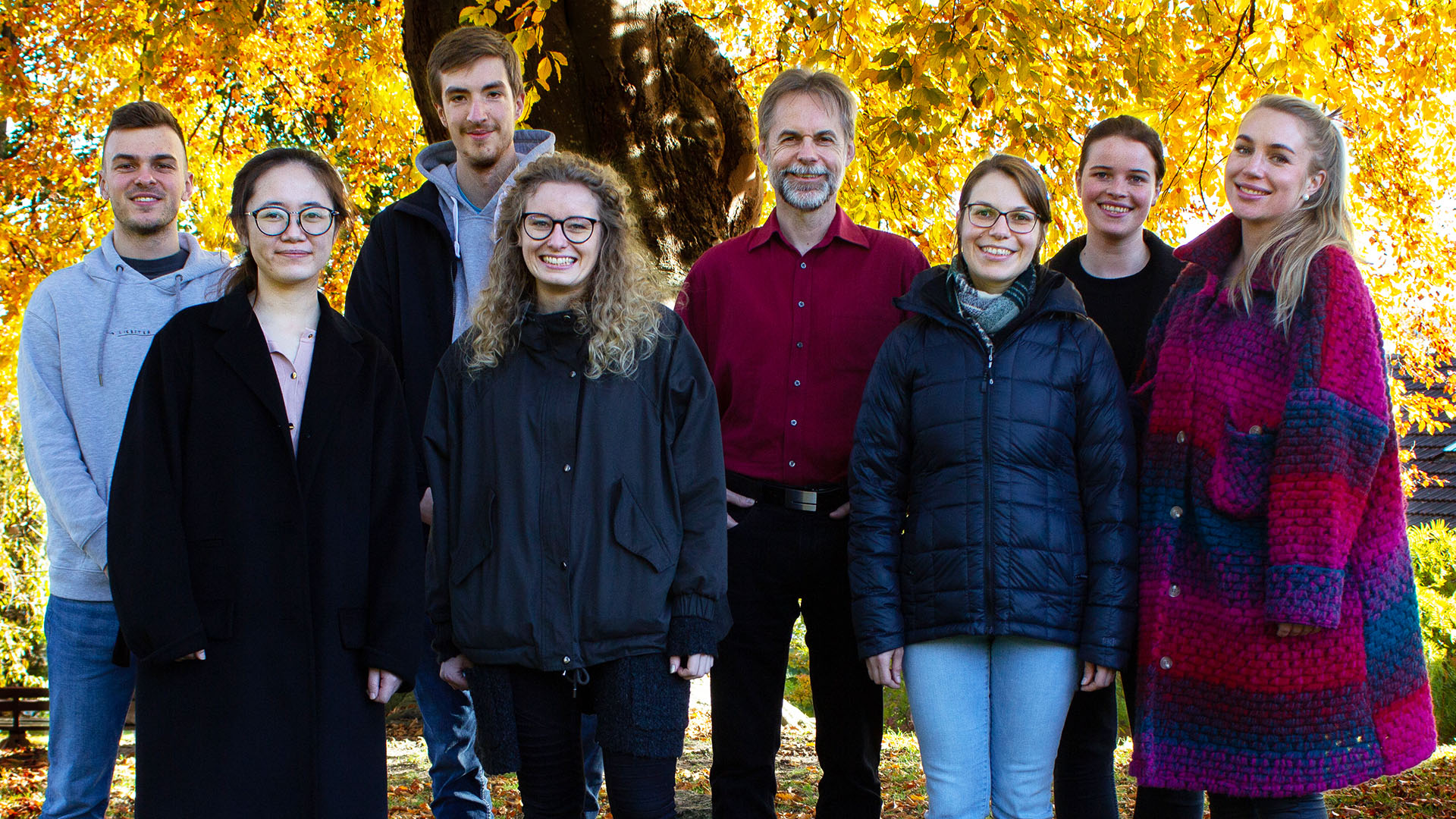
Cell death is essential for the survival and health of multicellular organisms.
We investigate the underlying molecular mechanisms to contribute to an improved treatment of diseases with too much (degenerative diseases) or insufficient cell death (cancer, autoimmunity).
Group leader:
,
Group members:
In multicellular Organisms, the strict regulation of cell division, cell differentiation, and cell death is essential for their survival and homeostatic well-being. A disturbed balance between cellular proliferation and death my cause cancer (excessive proliferation or impaired death of cells), degenerative diseases (enhanced cell death, e.g., in neurodegenerative processes), deregulated immune responses (e.g., autoimmunity caused by insufficient elimination of autoreactive cells) or severe developmental defects.
Therefore, all cells have developed mechanisms to commit suicide when they might become dangerous for the whole organism, e.g. after virus infection or after having suffered enough damage to cause transformation into a cancer cell. It has become clear in the last years that cells can kill themselves via multiple distinct programs which are summarized under the term “regulated cell death.” A precise understanding of the different forms of regulated cell death is the prerequisite for future therapeutic interventions, e.g., to prevent excessive cell death in degenerative diseases, or to permit a more efficient elimination of tumor cells in cancer patients. Therefore, the elucidation of the molecular mechanisms and signaling pathways of regulated cell death is the main goal of our research.
1. Immunogenic cell death in cancer: targeting necroptosis to induce antitumour immunity
Meier P, Legrand, A, Adam D, Silke J. Nat Rev Cancer, online ahead of print (2024)
2. Protease-independent control of parthanatos by HtrA2/Omi
Weiss J, Heib M, Korn T, Hoyer J, Fuchslocher Chico J, Voigt S, Koudelka T, Tholey A, Adam D. Cell Mol Life Sci 80, 258 (2023)
Sosna J, Voigt S, Mathieu S, Lange A, Thon L, Davarnia P, Herdegen T, Linkermann A, Rittger A, Chan FK, Kabelitz D, Schütze S, Adam D. Cell Mol Life Sci. (2014) 71:331-348
4. Ceramide mediates caspase-independent programmed cell death
Thon L, Möhlig H, Mathieu S, Lange A, Bulanova E, Winoto-Morbach S, Schütze S, Bulfone-Paus S, Adam D. FASEB J. (2005) 19:1945-1956
5. Overexpression of acid ceramidase protects from tumor necrosis factor-induced cell death
Strelow A, Bernardo K, Adam-Klages S, Linke T, Sandhoff K, Krönke M, Adam D. J Exp Med. (2000) 192:601-611
6. Tumor suppression in Xiphophorus by an accidentally acquired promoter
Adam D, Dimitrijevic N, Schartl M. Science. (1993) 259:816-819
Prof. Dr. rer. nat. Dieter Adam
Prof. Petra Bacher, Institut für Immunologie, Christian-Albrechts-Universität, Kiel, Deutschland
Prof. Thomas Bosch, Zoologisches Institut, Christian-Albrechts-Universität, Kiel, Deutschland
Prof. Ottmar Janßen, Institut für Immunologie, Christian-Albrechts-Universität, Kiel, Deutschland
Prof. Dieter Kabelitz, Institut für Experimentelle Tumorforschung, Christian-Albrechts-Universität, Kiel, Deutschland
PD Dr. Norbert Reiling, Forschungszentrum Borstel, Borstel, Deutschland
Prof. Thomas Renné, Institut für Klinische Chemie und Laboratoriumsmedizin, Universitätsklinikum Eppendorf, Hamburg, Deutschland
Prof. Stefan Rose-John, Biochemisches Institut, Christian-Albrechts-Universität, Kiel, Deutschland
Prof. Ulrich Schaible, Forschungszentrum Borstel, Borstel, Deutschland
Prof. Susanne Sebens, Institut für Experimentelle Tumorforschung, Christian-Albrechts-Universität, Kiel, Deutschland
Prof. Anja Trauzold, Institut für Immunologie, Christian-Albrechts-Universität, Kiel, Deutschland
Prof. Daniela Wesch, Institut für Immunologie, Christian-Albrechts-Universität, Kiel, Deutschland
University Hospital Schleswig-Holstein
Institute of Immunology
Arnold-Heller-Straße 3
Haus U30
24105 Kiel